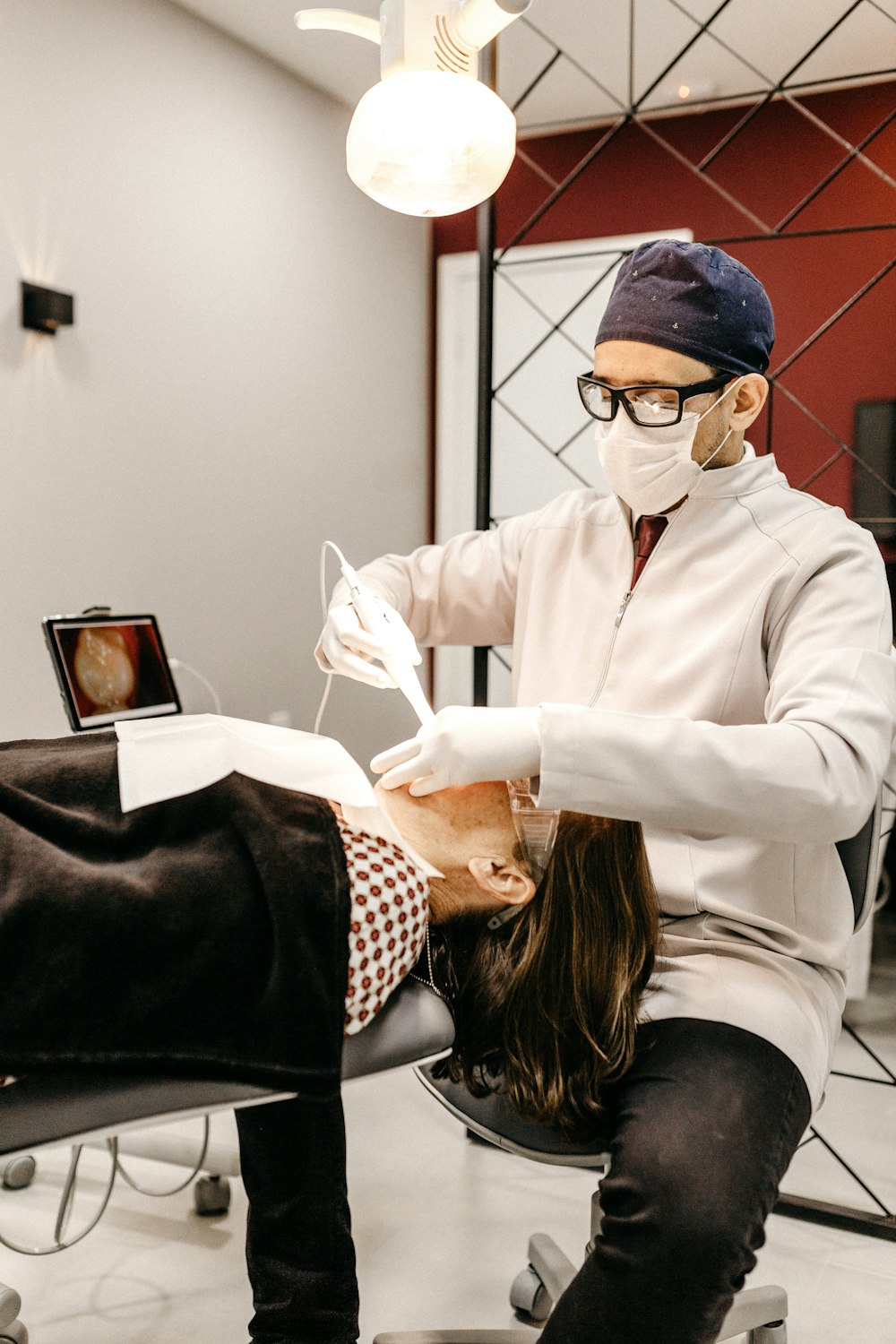
Thousands of patients of an Oklahoma dentist are being urged to get tested for HIV and hepatitis after public health officials found evidence of practices that could have exposed patients to the viruses.
The Oklahoma and Tulsa health departments said Thursday approximately 7,000 people who were treated at clinics operated by Dr. W. Scott Harrington could have been exposed to Hepatitis B, hepatitis C, and HIV, the virus that causes AIDS, calling the dentist "a menace to public health."
State and county health inspectors went to Harrington's practice after a patient with no known risk factors tested positive for both hepatitis C and the virus that causes AIDS. This is not an outbreak. The investigation is still very much in its early stages.
After determining the patient had a dental procedure about the likely time of exposure, investigators visited Harrington's office and found a number of unsafe practices.
The agencies found "major violations" of the Oklahoma Dental Act and numerous violations of health and safety laws during an investigation into Harrington's practice. These included employees using dirty equipment, reusing needles, and administering drugs without a license.
"This is an unprecedented event," Susan Rogers, executive director of the state Board of Dentistry, said in an interview. "To my knowledge, this has never happened before as far as a public notification of a hepatitis C case involving a dental office."
The Oklahoma Board of Dentistry said the inspectors discovered multiple sterilization issues at Harrington's offices, including the use of a separate, rusty, set of instruments for patients who were known to carry infectious diseases.
The Board lodged a 17-count complaint against Harrington, saying he was a "menace to the public health by reasons of practicing dentistry in an unsafe or unsanitary manner." Among the claims was one detailing the use of rusty instruments in patients known to have infectious diseases.
"The CDC (Centers for Disease Control and Prevention) has determined that rusted instruments are porous and cannot be properly sterilized," the board said in a 17-count complaint against the dentist.
Officials are sending letters to 7,000 people who are known to have been patients of Harrington, but they noted that they do not have information for patients before 2007. The letters urge the patients to be tested for hepatitis B, hepatitis C and HIV viruses typically spread through intravenous drug use or unprotected sexual contact, not occupational settings.
The Dentistry Board said Harrington ran a clinic that paid little attention to ensuring items were sterile. Dental assistants needing an extra dose of an anesthetic would re-insert used needles into drug vials, drug vials were used on multiple patients, the office had no written infection-protection procedure and Harrington told officials he left questions about sterilization and drug procedures to his employees.
The doctor is also accused of letting his assistants perform tasks only a licensed dentist should have done. Also, the complaint says that the doctor's staff could not produce permits for the assistants when asked for them.
Rogers said that as an oral surgeon, Harrington routinely does invasive procedures that involve "pulling teeth, open wounds, open blood vessels." The Dentistry Board complaint said Harrington and his staff told investigators that a "high population of known infectious disease carrier patients" received dental care from him.
According to the complaint, a device used to sterilize instruments wasn't working properly. A test is supposed to be performed monthly and sent to a lab to determine that the equipment is successfully sterilizing instruments, but "no such test had ever been performed in the 6 years one dental assistant had been working at the office," the complaint said.
The doctor also apparently used outdated drugs, as one vial found this year had an expiration date of 1993 and didn't properly keep track of drugs, the complaint said. It noted that a drug cabinet was unlocked and unattended during the day and that dental assistants administered IV sedation for procedures without the doctor being present.
It also said that although U.S. Drug Enforcement Administration records show Harrington had not received morphine from a distributor since 2009, the drug logs kept by his assistants said morphine had been used on patients intermittently throughout 2012.
Officials said patients will be offered free medical testing at the Tulsa Health Department's North Regional Health and Wellness Center.
Most people who become infected by hepatitis C get it by sharing needles or other equipment to inject drugs, according to the CDC's website. The infection can last a lifetime and lead to scarring of the liver or liver cancer.
Most people who get hepatitis B have it for a short time, though it can cause a long-term infection that can damage the liver. It can be transmitted through unprotected sex and sharing needles.

